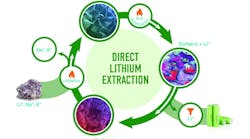U.S. Department of Agriculture (USDA) scientists have made advances in a process that produces a crude liquid called “bio-oil” from agricultural waste.
The biofuel is made from raw biomass material including non-food-grade plant matter sourced from agricultural or household waste residue.
Converting this material into crude bio-oil involves a process called pyrolysis, which chemically decomposes plant and other organic matter using very high heat. According to USDA’s Agricultural Research Service (ARS), the modified technique, called “tail-gas reactive pyrolysis” (TGRP), holds promise for improving the bio-oil that is ultimately processed into finished biofuels.
“We are using crop and forestry residue, such as wood and switchgrass, and also animal manures to produce bio-oils at an accelerated rate using a new high-output, mobile processing unit,” explained chemist Charles Mullen. “Rather than shipping large amounts of agricultural waste to a refinery plant at a cost, the mobile reactor allows us to convert the biomass into a more energy-dense bio-oil right on the farm.”
The researchers believe that using TGRP on-site will yield a higher quality bio-oil that is more marketable to biofuel producers than bio-oil made from traditional pyrolysis methods.
Typically, petroleum refineries are not equipped to distill crude pyrolysis oil into finished fuels because it is highly acidic and has high oxygen content, making it corrosive and thermally unstable. Although crude bio-oil can be deoxygenated by adding a catalyst, that process is expensive and complex. The ARS team’s studies have shown that the TGRP process produces bio-oils that are similar in composition and properties to those produced by adding the catalyst.
“The quality of TGRP deoxygenated liquids is equal to or better than the bio-oil produced by catalytic pyrolysis,” said chemical engineer Yaseen Elkasabi. “TGRP is an important step toward the ultimate goal of producing cleaner bio-oils that can be distilled at existing petroleum refineries.”


